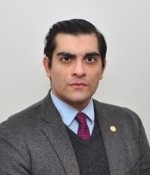FEATURED PAPER
By Prof. Dr. M.F. HARAKE
ESLI International
Graduate School of Management & Engineering
France
Abstract
In the study of competitive business strategies, hypercompetition has emerged as the result of business innovation, scarce competition, and industries’ wars. The study of hypercompetition has attracted significant interest from both economists and managers however, few scholars have studied this topic from a project management approach. The aim of this study is to present an overview of how firms immersed in hypercompetition can adopt a Wartime Project Management approach to gain a competitive advantage. The paper will outline the various principles of Wartime Project Management dynamic. Finally, the paper aims to facilitate a broader understanding of this particular managerial approach that can advance the knowledge on hypercompetition-related projects and give suggestions for future research.
Key Words: Hypercompetition; Wartime Project Management;
1 Introduction
Many scholars and practitioners have argued that due to scarce competition both the business industry and its related environment have been transformed and moved towards ‘’hypercompetition’’. Indeed, the intensification of such a trend is due to many factors which include globalization, the internet, information and communications technology, etc. (Harvey & Griffith, 2007). Such elements have regrouped industries in one much larger-global market, making it harder for industries to hold their market position(s) both locally and internationally. The result is the rising level of a draining rivalry – a phenomena now known as hypercompetition (Schumpeter, 1950; D’Aveni, 1999; Wiggins & Ruefli, 2002; Andrevski & Ferrier, 2019).
A lot of research was developed in order to explain this phenomena:
- Fundamental Research helped explain why we have this phenomena (reasons and factors), its theoretical implications, its various paradigms and paradoxes, etc.
- Applied research heavily insisted on innovation principles, change management frameworks, etc. (Shumpeter, 1950; D’Aveni, 1999).
However, very few researchers tried to elaborate on the project management implications and requirements now that the business world is considered in a state of rivalry very much similar to a state of war (Andrevski & Ferrier, 2019).
In this paper we review available literature and try to interpret it to get a better understanding of the linkage between Hypercompetition and Wartime Project Management. In order to do so we will:
- Work to decrypt the phenomena of hypercompetition;
- Study the difference between peacetime and wartime activities;
- Elaborate on the many elements of military science and how we can apply them in business-related project management;
- Explain the Wartime room concept.
2 The Phenomena of Hypercompetition
- Context
Scholars have argued that the nature of competition has indeed changed over the last few decades and more specifically since the 1980s (Lindskov et al., 2020). The business world is now living in a state of ‘’hypercompetition’’ – a state of intense industry rivalry, making it almost impossible to sustain a competitive advantage or maintain a marketplace (D’Aveni, 1994; Ilinitch et al., 1996; Wiggins & Ruefli, 2005; Andrevski & Ferrier, 2019). In this hostile environment, businesses are consumed, have diminishing business returns, higher business mortality, etc. (McNamar et al., 2003; Vaaler & McNamara, 2010).
More…
To read entire paper, click here
How to cite this paper: Harake, M. F. (2024). Hypercompetition and Wartime Project Management. PM World Journal, Vol. XIII, Issue IV, April. Available online at https://pmworldlibrary.net/wp-content/uploads/2024/04/pmwj140-Apr2024-Harake-Hypercompetition-and-Wartime-Project-Management.pdf
About the Author

Prof. Dr. M. F. HARAKE
Poitiers, France
![]()
Prof. Dr. M. F. HARAKE is a management Professor based in France. He is currently the Director of International Academic Affairs of GIP CEI (a French Higher Education and Research Institution). He is also the Doctorate in Business Administration (DBA) program manager of ESLI International – Graduate School of Management & Engineering (Paris – France) and the scientific director of the MBA DELIVERWEB at ALTERNIS Business School (Bordeaux – France). He previously served as a visiting professor at ESCE International Business School (Paris – France), Paris School of Business (Paris – France), Ascencia Business School (Paris – France), ESPRIT Business School (Tunis – Tunisia), GBSB Global Business School (Barcelona – Spain), etc.
Dr. M.F. HARAKE is a research fellow and former board member of the CEREGE Research Laboratory (University of Poitiers – France), and a visiting research fellow at CABMR Research Center (Paris – France). He is also an Honorary Academic Advisor and Research Scholar at the Project Management World Library (Austin / Texas – USA). He previously served as the Director of the CREFEGE Research Center (Paris – France). His research interests include Post-Conflict Public Management, Crisis and Urgent Operations Management, Humanitarian Logistics, and Project Management in Unstable Environments.
He can be contacted at mharake@gip-cei.com
To view other works by Prof. Harake, visit his author showcase in the PM World Library at https://pmworldlibrary.net/authors/mohamad-fadl-harake/









